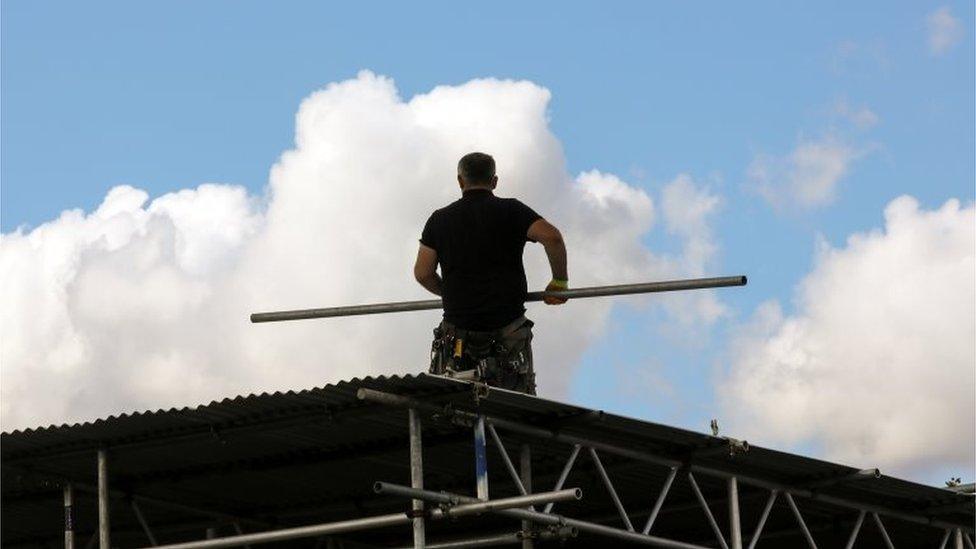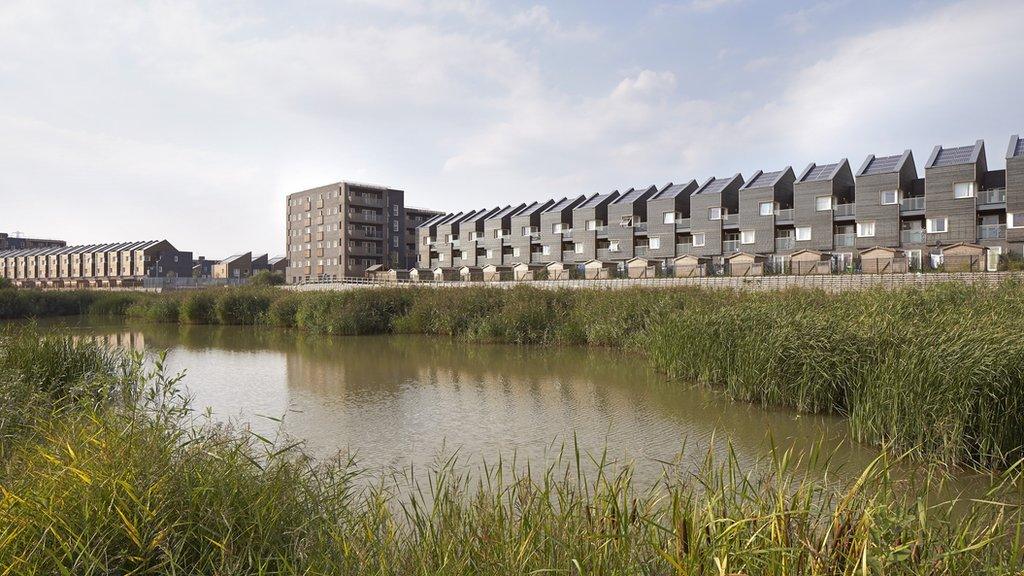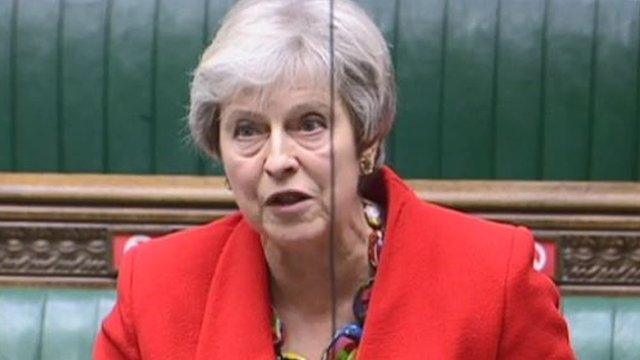Government won't cut 300,000 housing target - Robert Jenrick
- Published
- comments

The government "will listen" to views on where new homes should be built but won't cut its target to build 300,000 homes a year, Robert Jenrick has said.
The housing secretary said he wanted to encourage more building in the Midlands and the North rather than London.
Several Tory MPs have expressed concern that the government's plan could mean more homes in rural areas and undermine the government's "levelling-up" agenda.
Mr Jenrick also set out plans to tackle homelessness over the winter.
Asked about the government's housing plans for England, Mr Jenrick said he wanted homes to be built in every part of the country, including in those areas where it is expensive to live.
He said local councils would be given a rough estimate of how many homes needed to be built in their community.
Local councils should then come forward with potential sites for new buildings - taking into account constraints such as areas protected by the green belt, he said.
"Obviously we will listen to views express in the consultation or whether there are different ways to achieve that, " he said.
"But are we going to move away from our objective to build more homes? Absolutely not.
"We should be a government that is setting out to build more homes because we've got to help next generation onto the housing ladder and the most vulnerable people in society to get homes.
A consultation on the government's plans - including a new formula for assessing housing need - is due to close at 23:45 BST on Thursday.
The proposals have been attacked by some of the government's own MPs including former Prime Minister Theresa May.
She described the plans as "ill-conceived" and "mechanistic".
And Isle of Wight MP Bob Seely said the algorithm would "hollow out our cities, urbanise our suburbs and suburbanise the countryside".
The plans have also been criticised by the director of the National Trust. Speaking to the Times,, external Hilary McGrady said she had "significant concerns" and said it "must not lead to concrete deserts devoid of green space, lacking corridors for nature and sustainable travel".


There is both nervousness and anger among the Tory MPs who oppose these planning reforms.
Nervousness that the government could press on with its new system for determining the number of new homes needed in each area as soon as next month, and anger at the prospect of their concerns being ignored.
The housing secretary was non-committal, saying only that the government would listen to views.
The policy here is crucial; the housing crisis is acute and new homes are needed in the right place at the right price. But the politics matters too.
The government has already burned political capital on its backbenches with the way it's handled some aspects of the coronavirus crisis.
Pressing on with the proposed new system for local housing targets - as well as the wider planning reforms - will result in another backbench backlash.
Beyond that, there are local elections next year , and nervous Tories in the party's heartlands fear any public anger at these plans will be felt at the ballot box.
Read more about why the planning battlle has caused a political row

Mr Jenrick's comments come as the government announced £150m to help build 3,300 homes for rough sleepers by March 2021.
The Everyone In scheme - launched in March - saw almost 10,000 homeless people in England moved into safe emergency accommodation such as hotels and 19,000 provided with settled accommodation.
However Mr Jenrick said there were concerns that the coronavirus pandemic could mean a "further flow" of people becoming homeless due to unemployment and other issues.
He also said the government would work with night shelters as an "absolute last resort" adding that the pandemic made them "difficult to manage".
- Published24 February 2020

- Published6 August 2020

- Published8 October 2020
